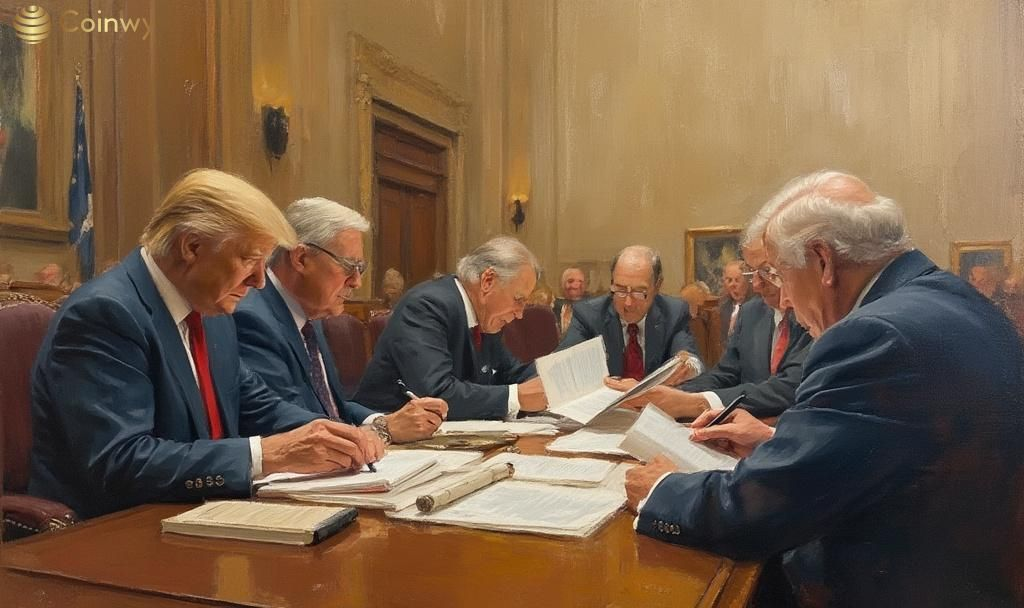- Main event involves Senate investigation into Trump’s crypto ties.
- Trump’s affiliates hold $10.4 billion in $TRUMP tokens.
- Potential corruption and market impact scrutinized by the Senate.
President Donald Trump’s $TRUMP cryptocurrency is under investigation by the U.S. Senate, examining potential corruption. Trump’s affiliates control 80% of the $10.4 billion project, with significant market impacts observed.
Donald Trump’s direct involvement in the $TRUMP cryptocurrency is raising scrutiny, as his affiliates control a significant portion of the token’s supply. The project has sparked discussions on ethical governance practices. The Senate’s investigation seeks to determine if there are corruptive financial ties linked to President Trump and his associates through these crypto activities, probing the legitimacy and legal boundaries of Presidential endorsements in the crypto space.
The financial impact on markets includes heightened activity and speculative flows towards $TRUMP and related tokens. The project has induced significant trading fees, impacting both crypto and financial sectors with new dynamics. Politically, this investigation may reshape future crypto regulations, emphasizing the disconnect between speculative gains and ethical governance. As effects unfold, both governmental ethics and financial regulations in crypto face potential shifts.
“There is no room in the American democratic system for the president to be personally enriching himself directly or indirectly from decisions he makes while in office. Congress must immediately pass this commonsense legislation to root out public corruption and prevent illegal foreign influence for this or any future administration.” — Senator Catherine Cortez Masto
With Trump’s ownership of $TRUMP, further insights may reveal shifts in crypto market dynamics and legal precedents for future administrations concerning direct financial incentives from presidential endorsements. The crypto community remains watchful of regulatory responses, needing clarity on boundaries around political figures influencing market trends. These developments could lead to stricter regulations aimed at preventing future conflicts of interest and market manipulations. Both investors and policymakers await more definitive actions and regulations to address these potential conflicts effectively.






